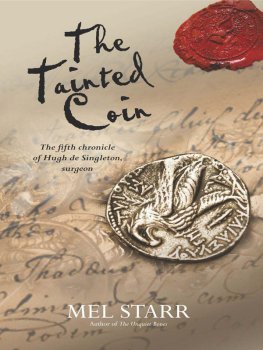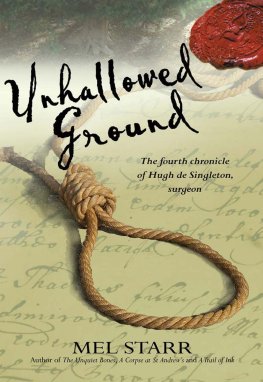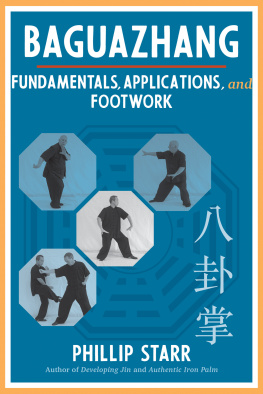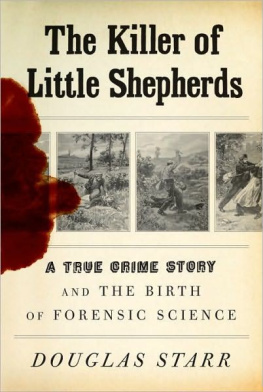Douglas Starr - Blood
Here you can read online Douglas Starr - Blood full text of the book (entire story) in english for free. Download pdf and epub, get meaning, cover and reviews about this ebook. year: 2012, genre: Detective and thriller. Description of the work, (preface) as well as reviews are available. Best literature library LitArk.com created for fans of good reading and offers a wide selection of genres:
Romance novel
Science fiction
Adventure
Detective
Science
History
Home and family
Prose
Art
Politics
Computer
Non-fiction
Religion
Business
Children
Humor
Choose a favorite category and find really read worthwhile books. Enjoy immersion in the world of imagination, feel the emotions of the characters or learn something new for yourself, make an fascinating discovery.

- Book:Blood
- Author:
- Genre:
- Year:2012
- Rating:4 / 5
- Favourites:Add to favourites
- Your mark:
- 80
- 1
- 2
- 3
- 4
- 5
Blood: summary, description and annotation
We offer to read an annotation, description, summary or preface (depends on what the author of the book "Blood" wrote himself). If you haven't found the necessary information about the book — write in the comments, we will try to find it.
Blood — read online for free the complete book (whole text) full work
Below is the text of the book, divided by pages. System saving the place of the last page read, allows you to conveniently read the book "Blood" online for free, without having to search again every time where you left off. Put a bookmark, and you can go to the page where you finished reading at any time.
Font size:
Interval:
Bookmark:
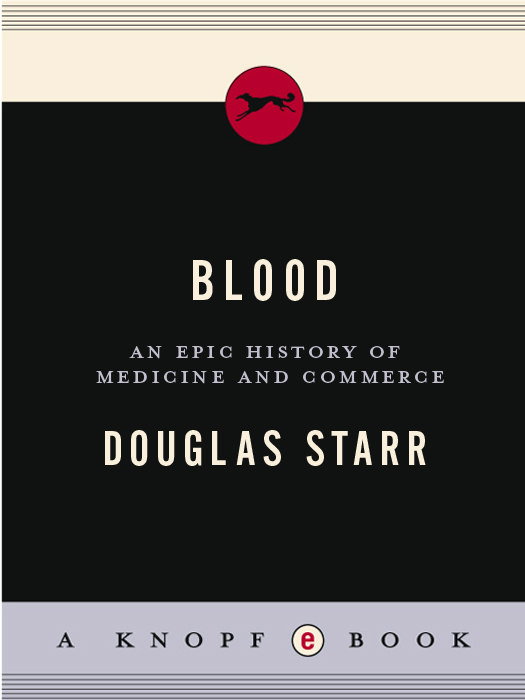
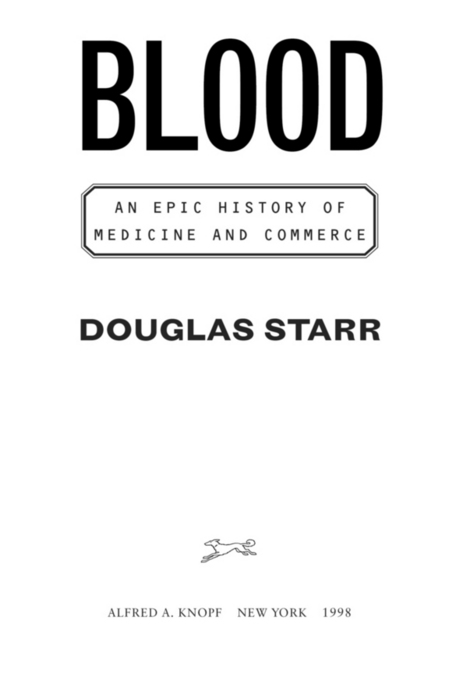
THIS IS A BORZOI BOOK
PUBLISHED BY ALFRED A. KNOPF, INC .
Copyright 1998 by Douglas Starr
All rights reserved under International and Pan-American
Copyright Conventions. Published in the United States by
Alfred A. Knopf, Inc., New York.
Distributed by Random House, Inc., New York.
www.randomhouse.com
Appreciation is made to Bertram Bernheim Jr. and I. W. Burnham II for use of quotations from Adventure in Blood Transfusion by Dr. Bertram B. Bernheim, an American pioneer in blood transfusion.
Library of Congress Cataloging-in-Publication Data
Starr, Douglas A.
Blood : an epic history of medicine and commerce /
by Douglas Starr. 1st ed.
p. cm.
eISBN: 978-0-307-82356-4
1. Blood banksHistory. I. Title.
RM 172. S 728 1998
362.178409dc21 97-46815
v3.1
For Mitch
The drama ended, as do so many these days, in a courtroom. This particular chamber was long and low-ceilinged, with a wide dais at its front for the eight black-robed judges. Each of the four defendants sat flanked by tall policemen who gazed impassively from under the brims of their trademark pillbox hats. In keeping with the formality of French courts, the prosecuting and defense attorneys wore flowing black robes, which would dramatically sweep behind them as they rose to make a point. The only visible flaw in the decorum appeared among the audience members, some of whom wore T-shirts bearing inflammatory slogans. There were audible exceptions to decorum as well, as people would moan or shout Non! at a defendants response, or when one man, the most vocal of the plaintiffs, would, as his doctor walked past, loudly hiss Assassin!
The plaintiffs in this trial were dying of AIDS. They charged that they had been infected through the negligence of the defendantshigh officials in the French national transfusion service. In France, where the government until recently held a monopoly on blood and its derivatives, these men were supposed to ensure the safety of blood products. Instead, they allowed thousands of the nations hemophiliacs to inject blood-derived clotting factors they knew to be contaminated. The defendants had done so because of a complicated mixture of paternalism, economics, and to some extent the limits of science, but the victims saw the incident more starkly. To them the affair was a matter of betrayal. The doctors on trial in the summer of 1992 were supposed to have embodied all that was noble in the French transfusion traditionaltruism, medicine, business, and technology. Instead, during the years of the contaminated-blood affair they came to symbolize the cynicism and expediency of a money-driven age.
The sense of betrayal surfaced in many places beyond the courtroom in Paris. For more than a decade the theme has been sounded in one locale after another throughout the world. In America, patients have filed hundreds of civil suits against doctors, drug companies, and even their own patient organizations, for abandoning their health to the expediency of the marketplace. In England, AIDS-infected hemophilia patients castigated their national transfusion service with reacting too slowly to the threat of emerging viruses. In Japan, patients charged that the government and drug companies criminally concealed the contamination of blood products; as a result, some of the nations most revered doctors have gone to jail. In Canada, the scandal of contamination spread so wide that the government held a series of hearings across the country that convulsed the nation with anger and shame.
Why those scandals erupted is one of the underlying questions of this book, a history of human blood as a resource and humanitys attempts to understand and exploit it. Blood is one of the worlds most vital medical commodities: The liquid and its derivatives save millions of lives every year. Yet blood is a complex resource not completely understood, easily contaminated, and bearing more than its share of cultural baggage. Indeed, the mythic and moral symbolism of blood, which has been with us since ancient times, subtly endures. It clouded professional judgments and public perceptions in the AIDS scandals of France, Canada, and Japan, among others.
If one considers blood a natural resource, then it must certainly rank among the worlds most precious liquids. A barrel of crude oil, for example, sells for about $13 at this writing. The same quantity of whole blood, in its crude state, would sell for more than $20,000. Crude oil, as we know, can be broken down into several derivatives, including gasoline, distillates such as diesel, and petrochemicals. Blood can be separated into derivatives as well. Spun in a centrifuge, it divides into layersred cells on the bottom, a thin intermediary layer of platelets and white cells, and an upper tea-colored layer of plasma. Each layer, in turn, can be used as various therapeutic products. Red cells can be transfused directly. White cells and platelets can be used to restore resistance or clotting ability to patients undergoing chemotherapy. Plasma, a resource in its own right, yields albumin for restoring circulation, clotting factors for patients with hemophilia, antibodies for vaccine production, and several other reagents and pharmaceuticals. Taken as a whole, the value of the derivatives in a forty-two-gallon barrel of crude oil would raise its price to $42. The price of the same quantity of completely processed blood would increase its value to more than $67,000.
Of course, blood is not processed by the barrel or handled in quantities anywhere near those of oil. (Only about sixteen million gallons of blood and plasma are collected annually worldwidethe equivalent of thirty-two Olympic-size swimming pools.) Indeed, the world market for blood and its derivatives probably does not exceed $18.5 billion per year, versus $474.5 billion for petroleum. Yet one cannot avoid comparing the two resources. Just like the oil industry, the blood trade involves collecting a liquid resource, breaking it into components, and selling the products globally. Red cells, being perishable, tend to remain within national borders, but certain portions of bloodplasma in particularare traded among multinational companies and on a worldwide spot market. Just as with oil, one region has become the premier harvesting ground, providing much of the resource for the rest of the world. The United States, with its liberal rules regarding collection, has become known as the OPEC of plasma.
No wars have been fought over blood as they have been for oil, but the movement of blood has played an important role in our wars. A major anxiety about D-Day, for example, was whether enough blood could be stored to supply all the wounded that military planners had projected. In preparation for the Persian Gulf War, the military shipped massive quantities of blood to the battle zone for what they thought would be thousands of casualties. (Good fortune proved them wrong.) Such collections have always been secret, since intelligence services know that the mobilization of blood is a sure sign of an impending attack.
If the analogy between blood and oil is provocative, it is where the comparison breaks down that the story of blood becomes especially compelling, and life-changing to those who have been caught in its sweep. For one thing, oil does not transmit disease, a critical consideration in the blood trade. A slip in quality control at a refinery may result in the loss of a few dollars, but a mistake in blood processing can infect thousands of people. Second, whereas oil companies pay handsomely for drilling rights, blood collectors pay nothing or very little for their raw material, since donating is thought of as an act of human kindness. Such an arrangement, however admirable, can distort peoples judgments. Think, for example, how the leaders of the oil industry would react if Saudi Arabia provided crude oil for free: They would bend over backward (even more than they currently do) never to offend their benefactors. So it had been with the blood collectors: When faced with the necessity of refusing blood from certain people to minimize the spread of viral disease, they found themselves reluctant to offend their cherished donors. As a result, public safety was compromised.
Font size:
Interval:
Bookmark:
Similar books «Blood»
Look at similar books to Blood. We have selected literature similar in name and meaning in the hope of providing readers with more options to find new, interesting, not yet read works.
Discussion, reviews of the book Blood and just readers' own opinions. Leave your comments, write what you think about the work, its meaning or the main characters. Specify what exactly you liked and what you didn't like, and why you think so.


